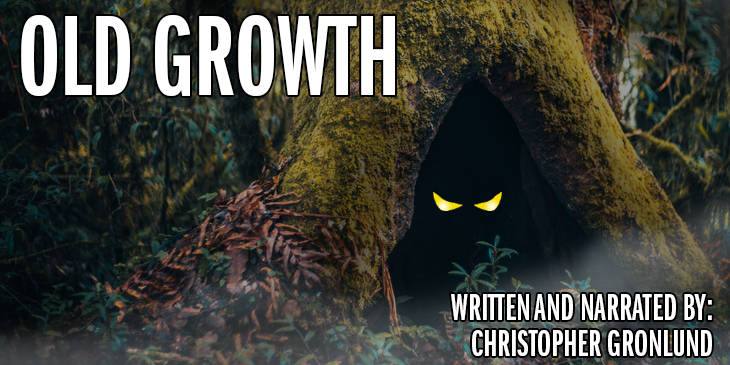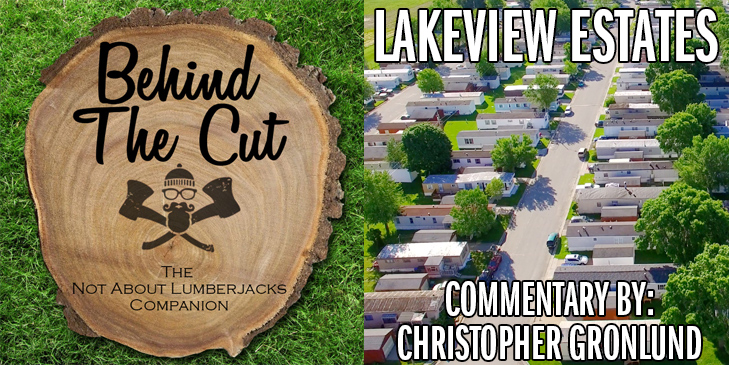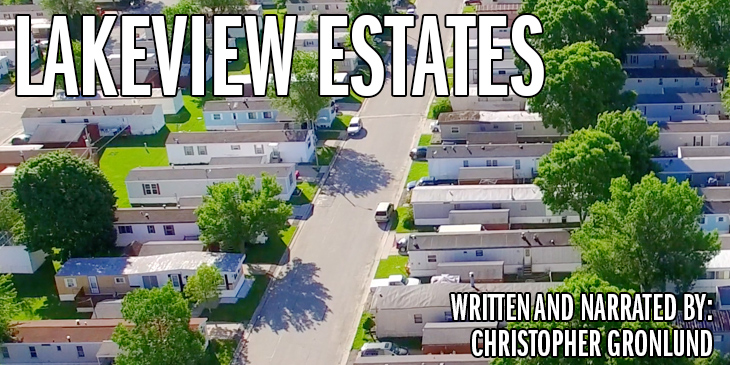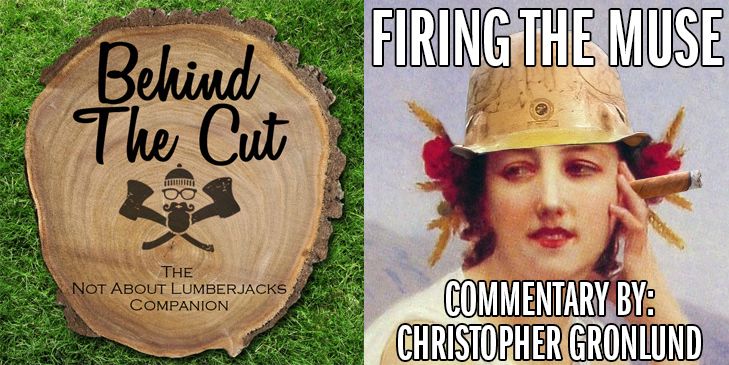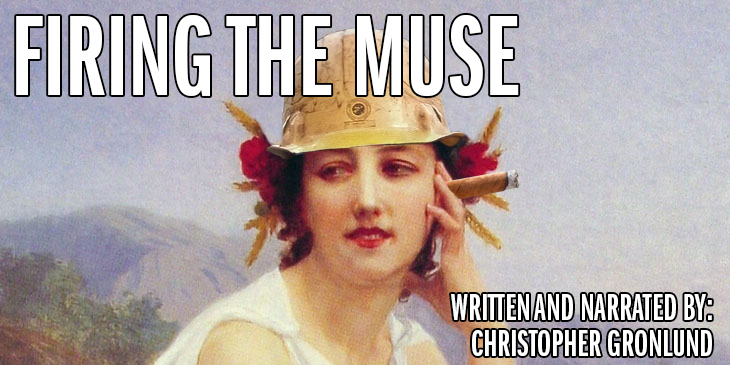You are a lumberjack alone on the side of a mountain with whomever—or whatever—killed your fellow loggers.
(Yep! This one’s in second person…)
Content Advisory: “Old Growth” deals with death, gore, anguish, being lost in a forest, being alone in the dark, and…creatures. But hey, at least there’s no swearing!
There’s really only one rather unpleasant horror scene. The rest is more just…creepy in its intent.
* * *
Before getting into the tale, I want to thank everyone for supporting Not About Lumberjacks and helping make this the 50th full story episode of the show! (If you factor in the Christmas stories, there are 70 free stories on the site.)
To honor the occasion, I’m doing a giveaway!
People have asked for merchandise, and it is on the way. Until then, this is your chance to be one of the few people on the planet with a Not About Lumberjacks t-shirt!
Here’s how it works (and this applies internationally as well):
- To get one entry in the random drawing, all you have to do is email me at NALStories@gmail.com and tell me your favorite episode or something you like about the show.
- If you email me and tell me that…and let me know you’ve shared this episode (or your fave) somewhere online…or that you subscribe to my YouTube Channel or newsletter, you’ll get a second entry. (I trust you and have no intention of making you prove it.)
- Finally, if you’re a Patreon patron, or sign up for my Patreon and let me know you did, you get a third chance.
I’ll do the random drawing on Saturday, December 23 and contact the winner then. (All contact will be directly from me, so if you get contacted through an Instagram account meant to look like me, or any place other than NALStories@gmail.com, it’s not me. I mention this because I know that even when someone tiny does some kind of giveaway, scammers try figuring out ways to exploit it. You will know me by the email address and my babbling thank you for supporting the show!)
And again…this applies to international fans of the show, too.
All right, let’s get to work!
* * *
Credits:
Music: Theme – Ergo Phizmiz. Story – Christoffer Moe Ditlevsen (closing tune: Christoffer Moe Ditlevsen, Anna Dager, and Hanna Ekström), licensed through Epidemic Sound.
Story and Narration: Christopher Gronlund.
Podcast: Play in new window | Download
Subscribe: RSS
